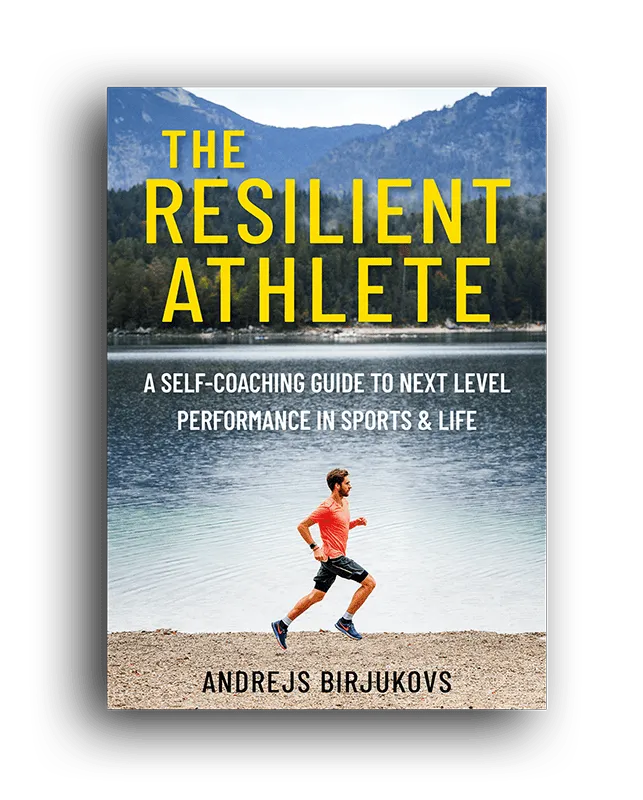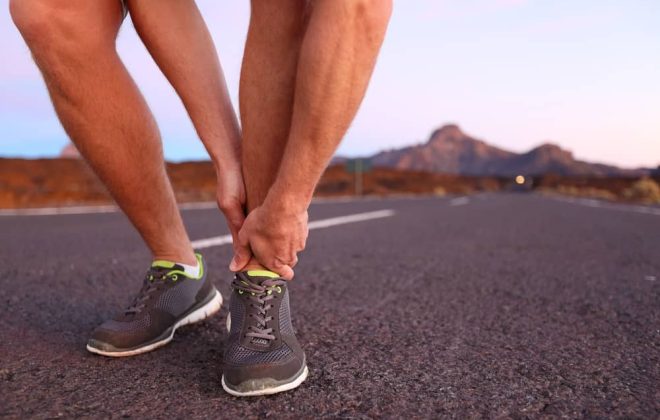Too Tired to Exercise? You Might Be Underfueling
Ever felt like you’re constantly exhausted and too tired to exercise, despite sticking to your training zones and recovery protocols? Well, you’re not alone – many athletes experience this. And the reason might not be overtraining…
Picture this, you’re logging the miles, showing up for every workout, doing your stretches and the mobility work. Even trying to optimize your sleep. But you still feel heavy, foggy, and not like yourself. Legs refuse to turn over, the mood is off, and workouts that used to feel effortless now feel like a chore.

For an endurance athlete who thrives on movement & performance, this isn’t just frustrating. It often feels demoralizing.
Most athletes would assume they’re overtrained. But what if the problem isn’t that you’re training too much… but that you’re not fueling enough?
A lot of people miss this, especially those in high-volume sports like triathlon, running, and cycling. Simply not eating enough can look like you’re overtraining, but actually undermine your progress and even lead to illnesses.
Understanding RED-S: More Than Just Fatigue
Imagine an athlete deep in marathon prep. They’re nailing every training session — long runs, tempo efforts, strength work. But day by day, motivation fades, pace stagnates, and recovery lags. They start skipping social events, sleep gets disrupted, and joy disappears. They think they’re “just tired.” But it’s actually more than that.
All of this sounds like a case of RED-S — Relative Energy Deficiency in Sport.
RED-S is a condition where the energy we’re taking in (through food) doesn’t match what we’re using (through training, daily activity, and simply our body operating). It’s not about being “too thin” or visibly unhealthy — it’s a physiological mismatch that affects all – even experienced & fit athletes.
When the energy availability drops too low, the body responds by prioritizing the essentials — like keeping your heart beating and your organs functioning — and scaling back everything else. This includes recovery, hormone regulation, immune function, and cognitive clarity.
Some common RED-S symptoms include:
- Persistent fatigue
- Decreased performance
- Hormonal imbalances
- Increased risk of injuries
Think of your body like a smartphone. When the battery is low, it starts shutting down non-essential functions to conserve energy. Background apps are paused. Screen brightness dims. Performance slows. Similarly, when your body doesn’t get enough fuel, it slows down some functions, which leaves you feeling drained and impacting your performance.

The Resilient Athlete
A Self-Coaching Guide to Next Level Performance in Sports & Life
Are you aiming to become a resilient athlete who is able to withstand any pressure? Be able to jump on any opportunity? Take any challenge life throws at you head on?
Then this book is for you.
Learn moreSigns You’re Underfueling
The effects of underfueling are not dramatic at first. In fact, they’re often easy to overlook until they compound. Maybe you’ve been skipping that post-run protein and carbs. Or even cutting carbs to “lean out” while maintaining the exercise schedule. Then your sleep gets worse. Your motivation dips. You brush it off as stress. But the truth is, the body always whispers before it starts to scream.
Recognizing the signs early can fix the ‘too tired to exercise’ issue quickly. And help prevent long-term consequences. Some indicators include:
- Constant fatigue and feeling “too tired to exercise”
- Frequent injuries or illnesses
- Irregular or missed menstrual cycles in women
- Mood swings or irritability – think of feeling ‘hangry’ all the time
- Difficulty concentrating
You don’t have to check every box to be underfueling. Even just one or two of these symptoms above could be a sign that your energy balance is off. And left unaddressed, the consequences can extend far beyond training — they can affect bone density, cardiovascular health, and long-term hormonal stability.
Read also: Top 10 Endurance Athlete Diet Mistakes And How To Avoid Them
Common Causes of Underfueling
In a world obsessed with body image and clean eating, it’s no surprise that even experienced athletes fall into the trap of underfueling — often unintentionally. The pursuit of leanness, discipline, or even performance can lead to habits that, paradoxically, undermine performance itself.
Several factors can contribute to underfueling:
- Strict dieting or calorie counting
- Skipping meals, especially post-workout
- Following restrictive diets that don’t match with your body and age
- High training volumes without increasing caloric intake
- Societal pressures to maintain a certain body image
You might start out with the best intentions — eating “cleaner,” trimming portions, or cutting out certain foods. But if you don’t replace the calories you’re burning, your body starts operating in a constant deficit. This is of particular issue for athletes switching to plant-based diets.
And this doesn’t only happen to pros or elite athletes. Recreational runners, amateur triathletes, and even weekend warriors are just as vulnerable — especially when trying to juggle training, work, family, and life without properly adjusting food intake.


Too tired to exercise? Start fueling for performance
Now imagine the opposite scenario: An athlete who finishes a long ride and immediately refuels with a balanced meal. They hydrate well, sleep deeply, and head into the next day with energy and clarity. That’s what optimal fueling does — it creates momentum instead of digging a deeper hole.
To ensure your body gets the energy it needs:
- Eat a balanced diet rich in carbohydrates, proteins, and healthy fats.
- Prioritize post-workout nutrition to aid recovery.
- Listen to your body’s hunger cues.
- Avoid skipping meals, especially during intense training periods.
Carbohydrates often get a bad rap, but they are the primary fuel source for endurance athletes. Without enough carbs, your muscles literally run out of gas — and your brain will start to feel it too.
Recovery isn’t just about rest — it’s also about replenishment. Which is why post-workout meals are critical. A simple mix of protein and carbs (like a smoothie with banana, oats and plant protein) can do wonders for recovery speed and muscle adaptation.
Read also: 14 Key Steps To An Effective Marathoner And Triathlete Diet
Final Thoughts
Training hard is essential, but so is fueling adequately. If you find yourself constantly fatigued or not making progress, consider evaluating your nutrition. Remember,
Food is fuel. And your body needs it — not just to survive training, but to thrive in it.
Your training isn’t just about the miles you put in — it’s about what you put in your body to support those miles. If you find yourself constantly slogging despite doing everything right, it’s time to zoom out and assess your energy availability. Don’t be afraid to eat more, especially when training ramps up.
You’re not weak. You’re not lazy. You might be simply low on energy. And that’s something you can fix — one well-fueled session at a time.
Kathrin Kriesch
Kathrin is an adventurer, athlete and artist as well as a Webdesign & SEO expert. With Bergnomadin and Mountain Brat she is supporting people to turn adventures into reality – with training tipps, trailrunning and hiking camps and upcycling gear. Living in Garmisch-Partenkirchen, Germany, she enjoys hiking and running in the mountains as well as writing, sewing and sketching.
Have an opinion? Share via links below and tag @theathleteblog
Tags In
GET A FREE TRAINING PLAN
Subscribe to my email list and get access to a free 4-week “back in shape” training plan
You’ll also get two full-body strength sessions and some other goodies!

How did I get here?
Hey there! My name is Andrejs and I am here to inspire, entertain and get you fit for any adventure.
I went from being an over trained pro athlete to an endurance coach sharing how to listen to your body and live life to the fullest.
Traveling, new sports & activities brought new meaning to my training and made it much more effective, fun and enjoyable. And I'm here to help you do the same.


